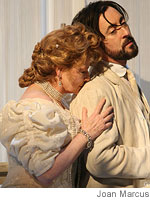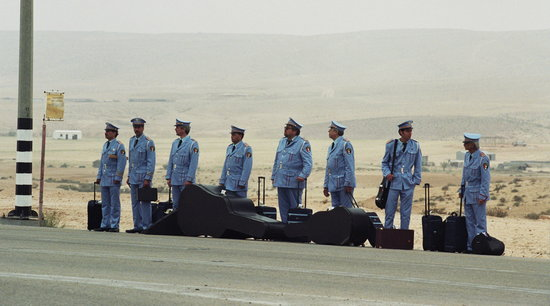One of my favorite American novelists, Jon Hassler, died yesterday. I wrote about him last summer:
Hassler is more a middlebrow than a modernist, and his (mostly) sympathetic chronicles of Minnesota life are written in a straightforward, accessible style. Judge him by the exalted standards of Proust and Joyce–or, for that matter, O’Connor–and he’ll come up short. Try thinking of him as a Midwestern John P. Marquand and you’ll get a better idea of what he’s about. “Of all the people I know,” Marquand observed, “only Americans, because of some sort of inferiority complex, keep attempting the impossible and trying to get away from their environment.” Jon Hassler has never made that mistake. His novels are set in the small-town world where he was born and in which he has spent the whole of his 74 years, and his characters are ordinary people who spend their days grappling, sometimes successfully and sometimes not, with the ordinary problems of life, love, aging, and death.
One of the things that makes these characters so distinctive is that many (though not all) of them are churchgoers. Not coincidentally, Hassler is a Catholic novelist, and certain of his books are very decidedly the work of a Catholic Novelist. Yet their temperate emotional climate has little in common with the claustrophobic creations of, say, Graham Greene or François Mauriac. In Hassler’s novels, no one, not even the priests, is obsessed with the problem of faith in the modern world, nor do his teachers, grocery-store owners, and family doctors take much of an interest in what Browning called “the dangerous edge of things.” They are simply trying to get along in a complicated world, and though they view that world through the prism of belief, most have learned that few answers are quite so easy as they look…
North of Hope, Hassler’s best novel, was reissued two years ago by Loyola Classics. I commend it to your attention.

 •
•  Eight Egyptian policemen, who comprise the Alexandria Police Ceremonial Orchestra, travel to Israel to perform at the opening of an Israeli-Arab cultural center. The opening scenes find them negotiating with difficulty but with dignity the challenges of a foreign airport, identically dressed in stately powder-blue uniforms. In the movie’s signature image, they stand in a row in an empty landscape, waiting. Each carries a standard black suitcase and his instrument, from a large, curvy double bass case to a small, boxy clarinet case with many sizes and shapes in between. The dry comedy of this image–a little reminiscent, to me, of a William Booth cartoon–characterizes a good deal of the movie, in which the band gets lost on the way to their concert in a sort of fortuitous, or at least adventurous, detour.
Eight Egyptian policemen, who comprise the Alexandria Police Ceremonial Orchestra, travel to Israel to perform at the opening of an Israeli-Arab cultural center. The opening scenes find them negotiating with difficulty but with dignity the challenges of a foreign airport, identically dressed in stately powder-blue uniforms. In the movie’s signature image, they stand in a row in an empty landscape, waiting. Each carries a standard black suitcase and his instrument, from a large, curvy double bass case to a small, boxy clarinet case with many sizes and shapes in between. The dry comedy of this image–a little reminiscent, to me, of a William Booth cartoon–characterizes a good deal of the movie, in which the band gets lost on the way to their concert in a sort of fortuitous, or at least adventurous, detour.